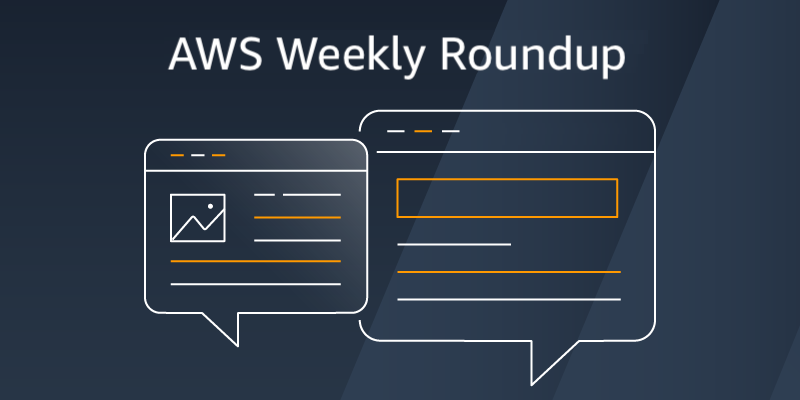AWS News Blog
Category: Amazon Bedrock
Announcing Amazon Nova customization in Amazon SageMaker AI
AWS now enables extensive customization of Amazon Nova foundation models through SageMaker AI with techniques including continued pre-training, supervised fine-tuning, direct preference optimization, reinforcement learning from human feedback and model distillation to better address domain-specific requirements across industries.
Introducing Amazon Bedrock AgentCore: Securely deploy and operate AI agents at any scale (preview)
Amazon Bedrock AgentCore enables rapid deployment and scaling of AI agents with enterprise-grade security. It provides memory management, identity controls, and tool integration—streamlining development while working with any open-source framework and foundation model.
Introducing Amazon S3 Vectors: First cloud storage with native vector support at scale (preview)
Amazon S3 Vectors is a new cloud object store that provides native support for storing and querying vectors at massive scale, offering up to 90% cost reduction compared to conventional approaches while seamlessly integrating with Amazon Bedrock Knowledge Bases, SageMaker, and OpenSearch for AI applications.
TwelveLabs video understanding models are now available in Amazon Bedrock
TwelveLabs video understanding models are now available on Amazon Bedrock and enable customers to search through videos, classify scenes, summarize content, and extract insights with precision and reliability.
AWS Weekly Roundup: Amazon Bedrock API keys, EC2 C8gn instances, Amazon Nova Canvas virtual try-on, and more (July 7, 2025)
Every Monday we tell you about the best releases and blogs that caught our attention last week. This week I’m making an exception to include a release from today: Amazon Bedrock API keys. This new feature simplifies generative AI development by providing direct API authentication without needing to manually configure IAM principals and policies. Amazon […]
Amazon Nova Canvas update: Virtual try-on and style options now available
Amazon Nova Canvas has introduced two new AI-powered image generation capabilities: virtual try-on for visualizing clothing on people and style options for applying predefined artistic styles to images, both accessible through the Amazon Bedrock console with straightforward API implementation.
AWS Weekly Roundup: Project Rainier, Amazon CloudWatch investigations, AWS MCP servers, and more (June 30, 2025)
Every time I visit Seattle, the first thing that greets me at the airport is Mount Rainier. Did you know that the most innovative project at Amazon Web Services (AWS) is named after this mountain? Project Rainier is a new project to create what is expected to be the world’s most powerful computer for training […]
AWS Weekly Roundup: Claude 4 in Amazon Bedrock, EKS Dashboard, community events, and more (May 26, 2025)
As the tech community we continue to have many opportunities to learn and network with other like-minded folks. This past week AWS customers attended the AWS Summit Dubai for an action-packed day featuring live demos, hands-on experiences with cutting-edge AI/ML tools, and more. Right here in South Africa I attended the Data & AI Community […]



